
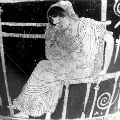
Maybe it was my expectations, but I purposely avoided the two recordings of this opera so I could come into the premiere performance at Manhattan School of Music with an open mind, hearing the entire opera for the first time in its entirety. I also avoided the recordings so I could do justice to the singers and not be thinking “Oh, well, Crespin did it better” the whole time.
Musically the show was very hard for me to place in my ear. It certainly wasn’t early “pretty” Fauré. It wasn’t impressionist Debussy or Ravel. It wasn’t grand Wagner, or dramatic Strauss. Pénélope to me sounded like if one took the worst parts of all those composers and bundled them all together into a show.
The opera was composed over six summers as Fauré was busy teaching at the Paris Conservatoire. René Fauchois was given the task of cutting his original libretto down from five acts to three due to Faure’s time constraints, resulting in the omission of the entire character of Telemachus from the opera. The lengthy and sporadic composition process could be part of the reason for the range in styles used in the piece: just imagine what was going on in the world from 1907-1913! I still feel like I need a day with the score to try and figure this beast out.
Based on what I heard last night, Lori Guilbeau is a young dramatic soprano to watch. I’m not saying she’s going to be the next Eva Marton, but neither am I ruling that possibility out. At 24 she has the power and control over her massive instrument that makes one look for good things in the future. Though she is quite a large lady by current operatic standards, she has the pipes to be a great Wagnerian or Verdi soprano.
She portrays nobility easily and fully, and sings with the power and sadness to truly inhabit the perpetually mourning queen of Ithaca. The role is long and grand, with no real time to relax, and the fact that Ms. Guilbeau was still sounding fresh after 130 minutes is another sign of great potential. She also deserves kudos for daring to follow in the footsteps of Crespin and Norman, quite daunting indeed!
Other notables from the cast include young, green, raw (how many other ways can I say “needs work?”) tenor Cooper Nolan. His Ulysse was at best heartfelt and gripping, and at worst shallow and throaty, but I will say that there is talent in there.
Laurent Pillot did his best conducting a clearly uninterested orchestra, but the dynamics were mostly in the mezzo forte range. Lawrence Edelson‘s highly choreographed direction was obvious and distracting and did nothing to set the mood. Also less than successful was the unit set designed by Martin T. Lopez. Three scrims of roses (somehow a theme in the opera despite a single mention in the libretto), a small platform to the right, and a door and loom on the left. Above the platform was an odd painting of a starry scene and the outline of a Trojan soldier, and the head of a large statue of Ulysse.
To experience a work by a master that isn’t performed often — even one that, in my opinion, should stay that way — is well worth the 20 bucks the Manhattan School is asking. A major revival of Pénélope would require both great artists and a lavish production to pull in an audience, as the work itself is not of the caliber of standard repertory. In the meantime, Pénélope is worthy of adding to your CD collection, especially for Crespin and Norman completists.














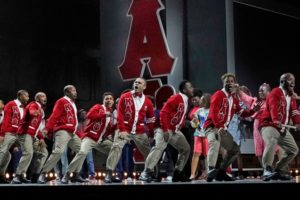
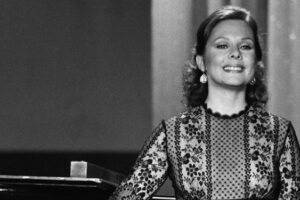
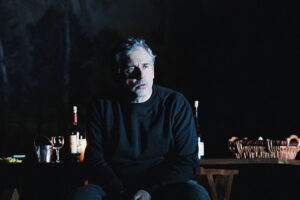
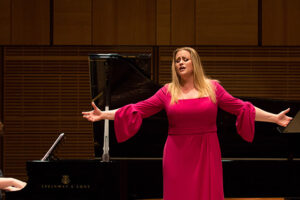





Comments